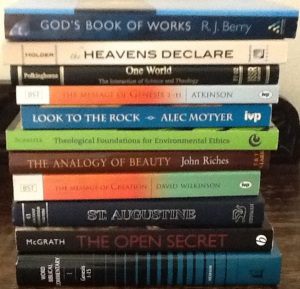There is a vast literature on wonder in science, but what about wonder in theology? When we encounter beauty and complexity in the world we often respond in one of two ways. We might wonder about the mechanisms that produced such a sight and want to find out more – wonder can lead us to science. Or we might start asking deep questions about the meaning of things: Why am I here? Do I have any significance in this vast place? Why is the world so beautiful and so terrible? Wonder can also lead us to theology. I would argue that while these two responses are different, they are not mutually exclusive.
To take this further, theologian Alister McGrath has identified three different sorts of wonder at the natural world.
- Innate or intuitive ‘awed wonder’. This is our immediate reaction to the beauty and complexity we see in nature. You don’t need any special knowledge to feel this sort of wonder.
- Derived wonder at a mathematical or theoretical representation of reality. So as wonder leads us to do science, we have the privilege of experiencing even more wonder as we see how incredible it all is: more highly organised and even more beautiful than it seemed at first.
- Derived wonder at nature pointing to God. This is that feeling of having experienced something transcendent that many scientists would call ‘spiritual’, and a Christian would understand as creation reflecting something of the personality of the Creator.
McGrath described Christian theology as ‘taking rational trouble over a mystery – recognising that there may be limits to what can be achieved, but believing that this intellectual grappling is both worthwhile and necessary.’ I find this, and the quote below helpful as I navigate my way through the concept of wonder in science and faith.
It just means being confronted with something so great that we cannot fully comprehend it, and so must do the best that we can with the analytical and descriptive tools at our disposal. Come to think of it, that is what the natural sciences aim to do as well. Perhaps it is no wonder that there is such a growing interest in the dialogue between science and religion.
Alister E. McGrath, article in Science & Christian Belief, 2005





